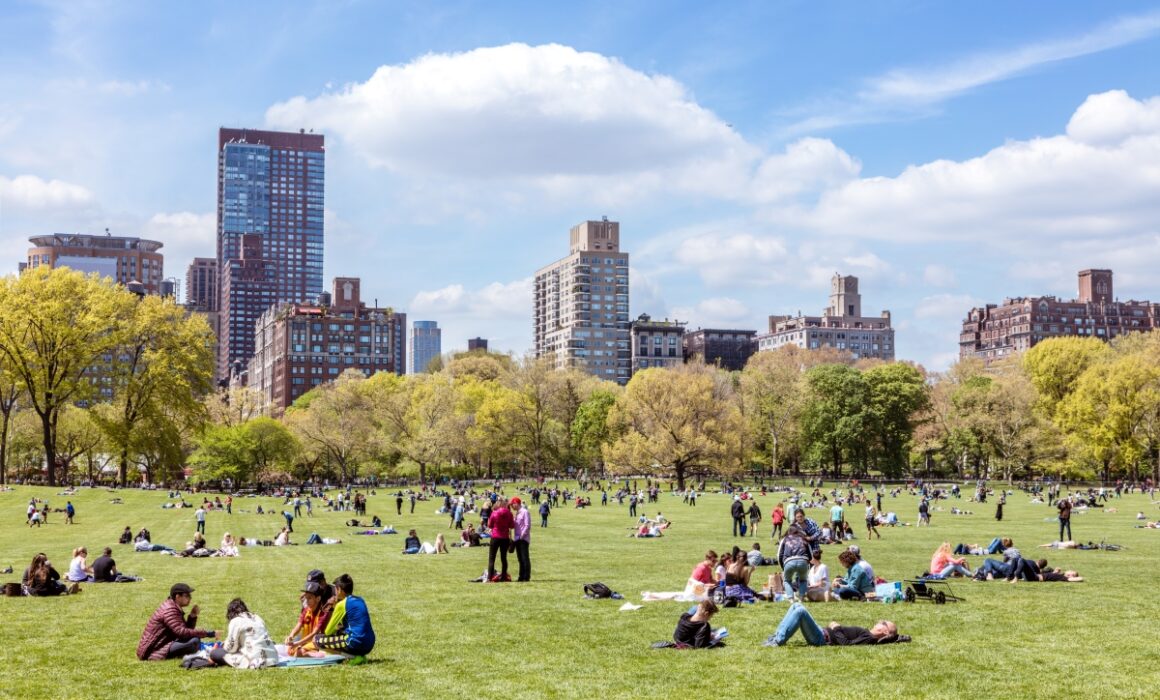How Do We Imagine the Good Life?
June 14, 2024
The Right has put forward an exclusionary vision of society. The Left has to counter it.
The Roosevelt Rundown features our top stories of the week.
(Photo by Matteo Colombo/Getty Images)
The Progressive Answer to Neoliberalism’s Cultural Wreckage
Neoliberal ideology has caused devastation from both a policy standpoint and a cultural standpoint. Narratives of narrow self-interest and grind culture have seeded widespread loneliness, burnout, and overwork—and the political Right has successfully harnessed those feelings to sow a reactionary vision of an exclusionary society.
In a new essay collection for The American Prospect, progressive thinkers and policymakers have better answers.
Expanding on our recent Cultural Contradictions of Neoliberalism report, and with an introduction by report coauthor Shahrzad Shams, the essays offer a range of ideas for what “the good life” could look like:
- Roosevelt Fellow Daniel HoSang and philosopher Colena Sesanker explore how “democracy schools” help communities organize to defend higher education;
- Climate policy expert Johanna Bozuwa explains how low-carbon leisure spaces like public parks and pools could help fight the climate crisis;
- Community psychologist Riana Elyse Anderson stresses the need for psychological reparations to support Black Americans;
- Labor lawyer Jenny Hunter argues that pop culture can help portray strong labor unions as a site of connection;
- Sen. Chris Murphy argues for an emphasis on communitarianism over individualism;
- And movement strategist Maurice Mitchell lays out a shared understanding of what all people are entitled to—a living wage, a strong education, and quality health care.
“It’s a lofty goal, no doubt,” Shams writes. “But at this political hinge point, it’s arguably more important than ever. After all, we cannot achieve what we cannot dream.”
Rethinking Money and Banking
From the 2008 stock market crash to the collapse of Silicon Valley Bank in 2023, every banking crisis reignites the debate on how to build a resilient financial system. In a new brief, Roosevelt Fellow Lev Menand offers a new perspective: Rethink the concept of money and banking entirely.
“Banking is a special type of financial intermediation because it involves expanding the total supply of money in the economy,” writes Menand. “Banks, in other words, do not need existing money to lend; their deposits function as money and they create new [deposits] when they originate new loans.”
Menand’s brief provides a sweeping historical overview of the changing US monetary system and a thorough analysis of the current policy landscape, focusing on three types of reform: hardening the regime of monetary liberalism, implementing structural reforms drawing on public utility principles, and introducing public options for bank deposits.
Read more in “Money and Banking in the United States: A Guide to the Policy Landscape,” and more about why this matters in a new blog post by Ming Jing.
What We’re Talking About
Exciting news!
After 12 yrs of leading Roosevelt as its President & CEO, @FeliciaWongRI has announced her plans to transition into a new role spearheading growth of the #RooseveltSociety in 2025.
👏 Please join us in congratulating & thanking Felicia! 🧵https://t.co/P1NNEV95pw pic.twitter.com/zumxtGH897
— Roosevelt Institute (@rooseveltinst) June 10, 2024
What We’re Reading
Community Banks Are Oddly Silent on the Looming Stablecoin Threat – by Roosevelt Fellow Todd Phillips – American Banker
Feds Set Stage for Antitrust Probes of Nvidia, Microsoft and OpenAI – Politico
Supreme Court, Siding with Starbucks, Makes It Harder for NLRB to Win Court Orders in Labor Disputes – Associated Press
How Arizona Is Building the Workforce to Manufacture Semiconductors in the US – PBS NewsHour
The FTC’s Renewed Fight against Corporate Power – Pitchfork Economics [podcast]


